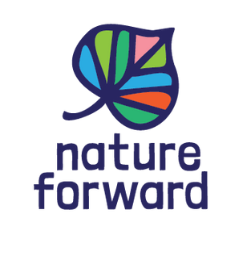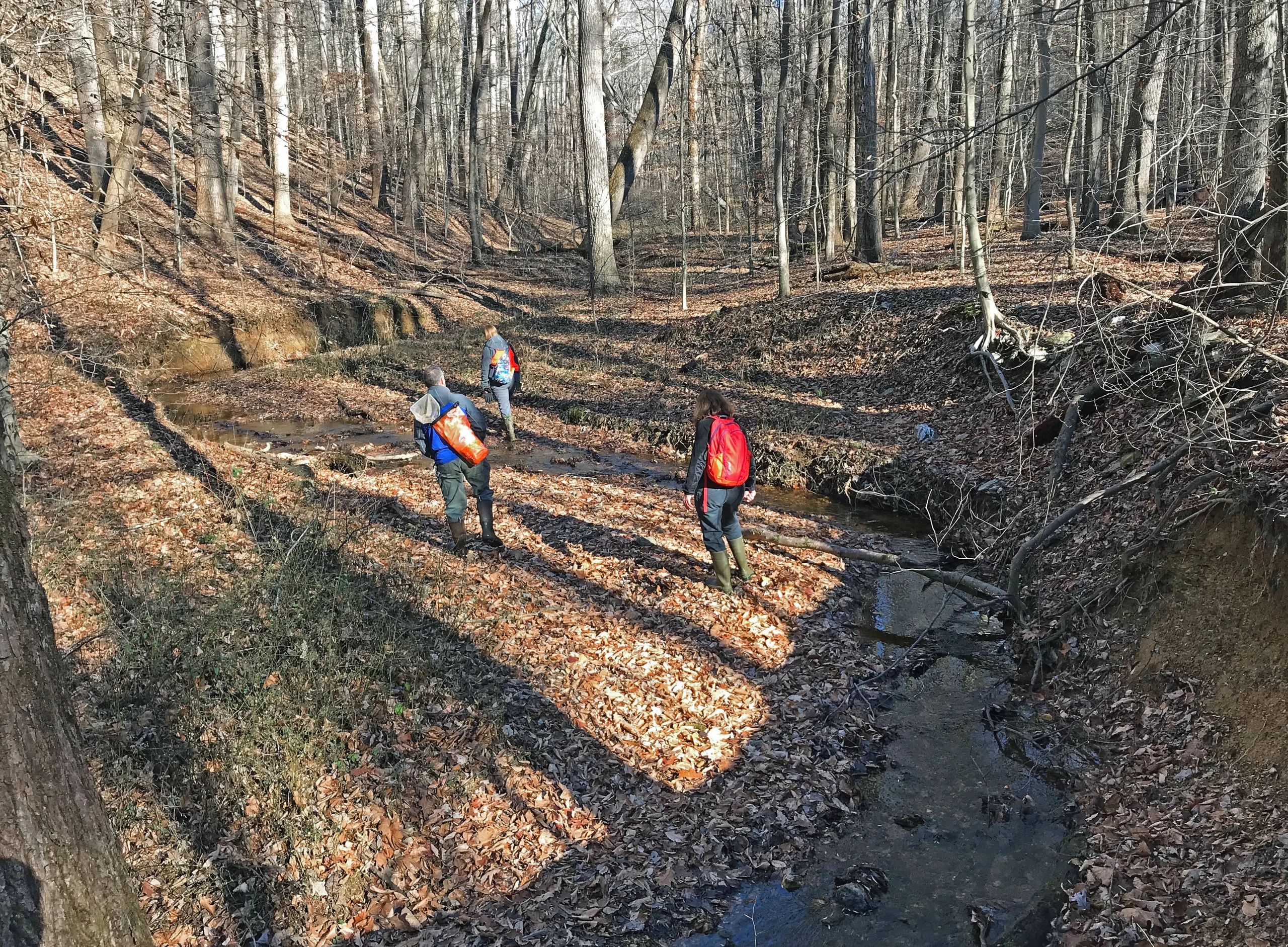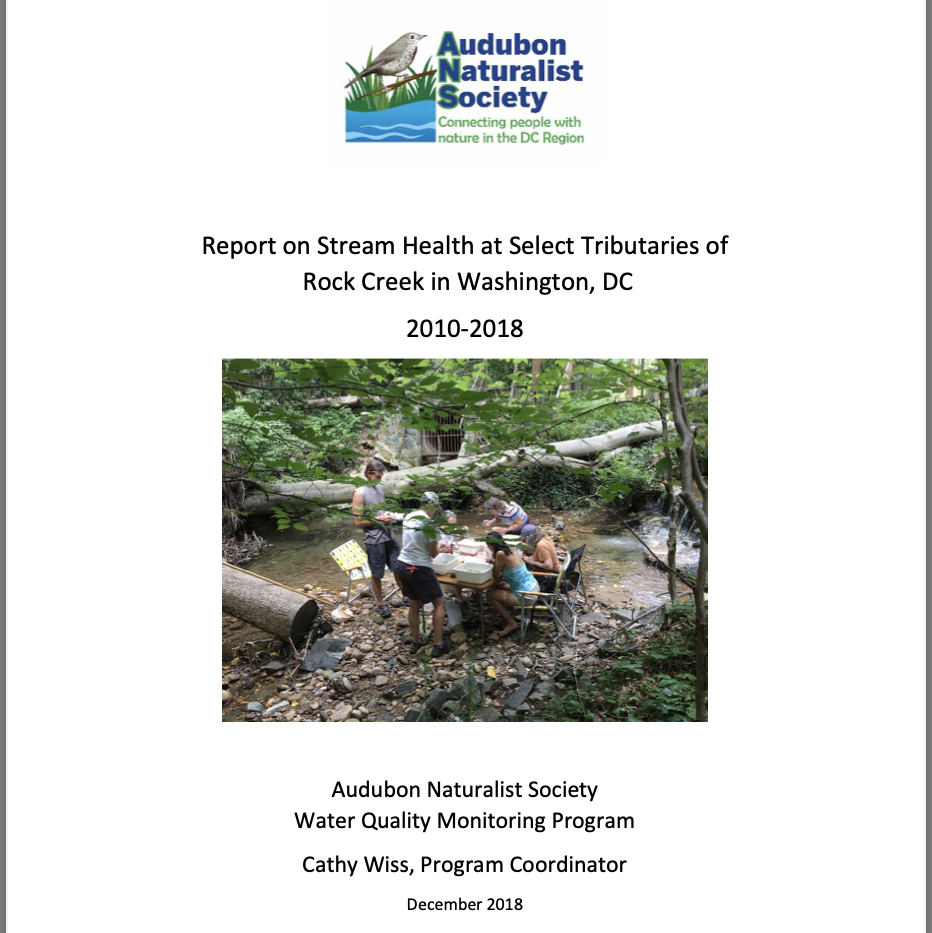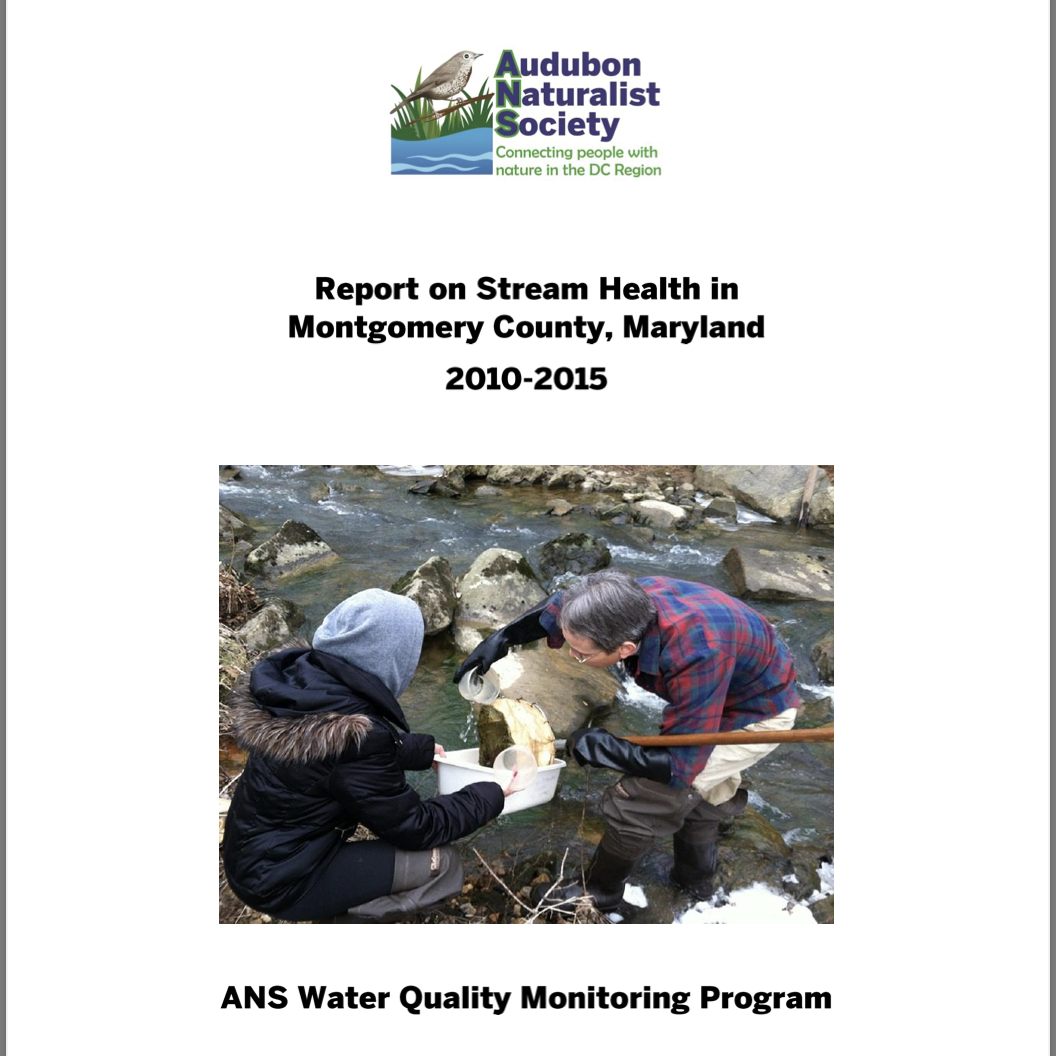Since the early 1990s, Nature Forward Water Quality Monitoring Program has operated throughout Montgomery County, Maryland, and in parts of the District of Columbia. We also host sites in Howard and Prince George’s Counties, MD. We provide our data to government agencies and to others upon request.
Learn more about the history of water quality monitoring at Nature Forward
How It Works
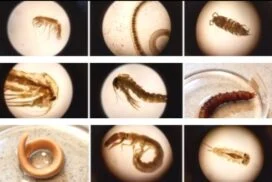
Teams of volunteer monitors visit stream sites in April, July, October, and optionally during the winter. They conduct habitat assessments and collect and identify “benthic macroinvertebrates,” small organisms that live in the streams. Because these organisms exhibit a range of sensitivities to pollutants and stressors, they help us determine the streams’ health. Our program is distinct in that our monitors identify aquatic insects to the taxonomic level of family. This gives us a clearer picture of aquatic diversity and stream health than more general identification practices. Our program is also unique in that monitors learn to identify the organisms in the field and then release them alive, rather than preserving them in alcohol and sending them to a lab for identification.
Each team has a designated leader who is certified in identification. New volunteers are teamed with experienced monitors at stream sites convenient to them. Our water quality classes give volunteers the information they need to monitor. See what it’s like–check out the video below!
Latest On the Blog:
-
Stream Monitoring Volunteers are Your “Eyes on the Ground”
October. Fall Monitoring. Three incidents discovered and reported. For nearly 30 years, WQM volunteers have played a crucial role in protecting streams by serving as “eyes on the ground.” They…
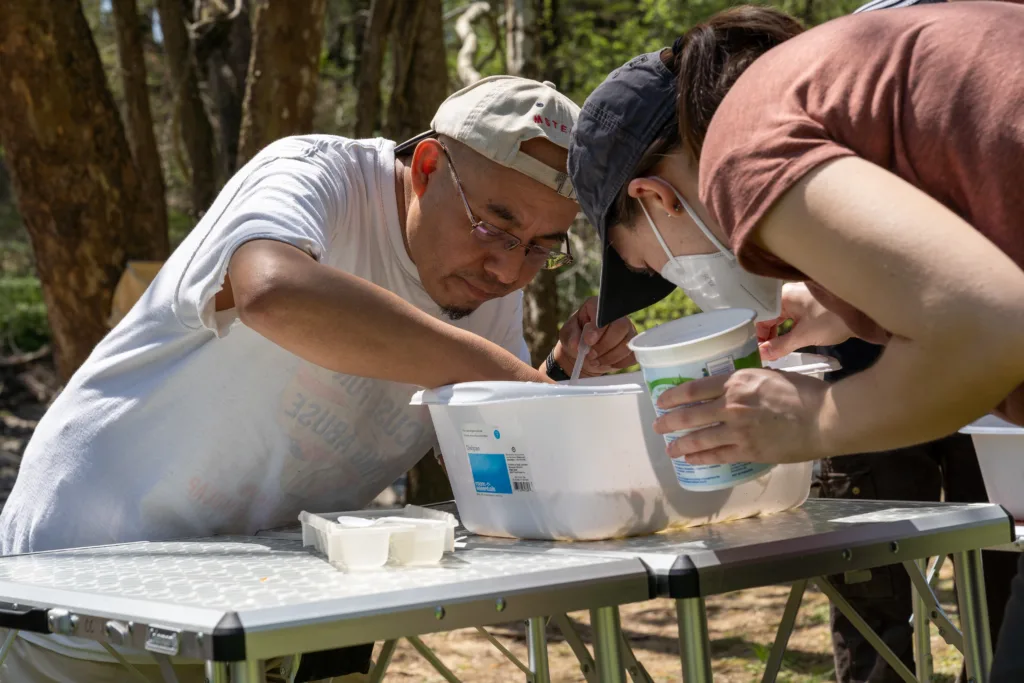
Become a Volunteer Water Quality Monitor
Before going into the field, new monitors should have a basic knowledge of macroinvertebrate identification and stream ecology, either from previous training or by attending Nature Forward’s water quality classes. Volunteers should also be willing to commit to at least two seasons of monitoring.
Ready to join a monitoring team?
Reports & Data
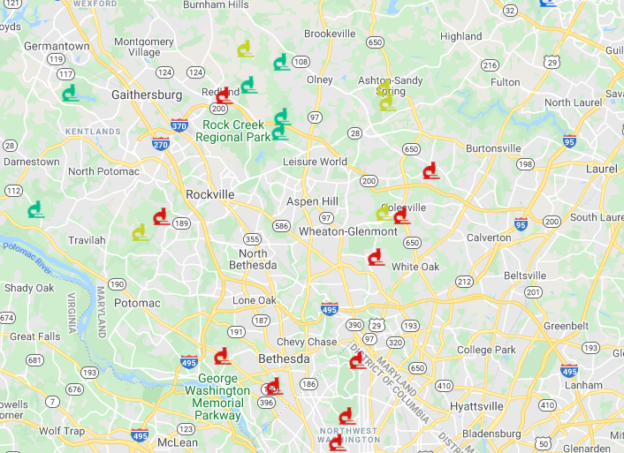
Where We Monitor: see a map of all our water-quality monitoring data. It shows all of our sites that have been monitored in the last five years. Click a site’s microscope icon to see a full list of organisms collected in the last monitoring session and its most recent stream health score (once it’s been quality-reviewed). At the bottom of the pop-up, click “Stream Health Over Time” to see a chart of spring Index of Biotic Integrity (IBI) scores graphed over time.
Download Nature Forward WQM Data: The Chesapeake Monitoring Cooperative (CMC) hosts our data in its Chesapeake Data Explorer, where it is packaged for download in a consistent format with other volunteer-collected water quality data and made available to the public and state & federal agencies. Visit the Chesapeake Data Explorer’s Query Page, set the Data Type to “Benthic Macroinvertebrates,” and then set the Group to “Nature Forward.” You can filter further by site (Station) and time period. Data availability in CMC is updated at the end of each calendar year.
Resources for Volunteer Monitors
Are you an Nature Forward or partner organization community-scientist who monitors regional streams? Here are some useful links to brush up on your protocols, download and print data forms, and more:
- Nature Forward Data Collection Form Cover Sheet (complete every visit)
- Nature Forward Data Collection Protocol
Macroinvertebrate Collection Forms
- Nature Forward Benthos Taxonomic Listing Data Form (complete every visit)
Habitat Forms
- Instructions on how to conduct a stream habitat rapid bioassessment (long file w color photos)
- MCDEP Riffle-Run Habitat Assessment Form(complete every visit)
- Instructions for Summer Habitat Data Sheet (July)
- Summer Habitat Data Sheet (complete in July)
- Instructions for Spring Habitat Data Sheet (April)
- Spring Habitat Data Sheet v010622 (complete in April)
Program Scientific Resources
Are you interested in how we ensure the integrity of our data and calculate our stream health scores? Read up on the fundamentals behind our program:
- Quality Assurance/ Quality Control Plan
- Calculating an Index of Biological Integrity (IBI) for Maryland Streams: The family-level calculations for a Benthic Index of Biological Integrity (BIBI) are described on pp 27-34.
Learn More
- Check out the Conservation Blog for more news and reports from our community scientists!
- For questions about monitoring with Nature Forward, email Gregg Trilling. For information about water quality monitoring in Northern Virginia, email Ashley Palmer with the Northern Virginia Soil and Water Conservation District.
- For information about the Chesapeake Monitoring Cooperative and bringing together volunteer data for government decision-making, click here
Self-Paced Online Stream Science Classes
For 30 years, Nature Forward has been teaching the natural history of aquatic ecology and training volunteer stream monitors who track the health of our region’s streams. Learn from the experts: study stream science in our introductory classes, and you just might be inspired to become a stream monitor yourself!
SELF-PACED ONLINE CLASSES AVAILABLE ANY TIME
Stream Science Introduction: Part 1: Healthy Stream Biology*. An introduction to monitoring and non-insect macroinvertebrates. Part 2: How to Read Your Stream*. Learn about the influence of land uses on streams, stream character and dynamics, bank erosion, bar formation, substrate composition, different velocity-depth regimes, and the importance of riffles and riparian vegetation. *These classes are recommended for all volunteer monitors and those interested in joining the program.
Advanced Macroinvertebrate Identification Series: Our advanced classes are perfect for those interested in deepening their knowledge about biological stream monitoring and are taught by instructor Cathy Wiss. Each class runs 45 – 70 minutes and includes extensive photos and videos collected by our own monitoring volunteers and staff, plus several carefully curated recommended videos from other sources. Classes include: Caddisflies; Beetles; Megaloptera, Hemiptera, Lepidoptera; True Flies; Damselflies and Dragonflies; Mayflies; Stoneflies. Bonus review session included if you sign up for the full series (15% discount for entire class series ($170 non-members / $102 members, includes a bonus review session).
REGISTRATION & FEE INFORMATION
Registration required: click here to register online for all classes. Cost for all classes: each class $25 non-members / $15 Nature Forward members / Free for any Nature Forward volunteer who has monitored with the WQM program in the last two years. Contact [email protected] for more information.
april, 2024
